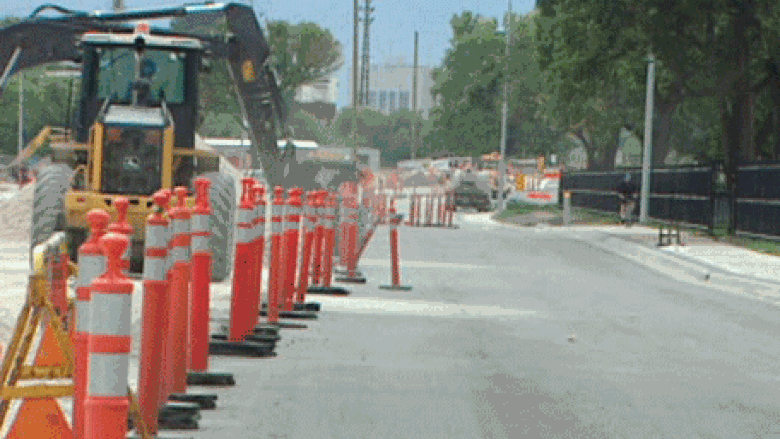Manitoba budget 2017: Infrastructure spending down nearly 10 per cent
Provincial infrastructure funding is dropping 9.5 per cent this year, prompting some concerns from municipalities and at least one sector of the construction industry.
The 2017-18 Manitoba budget calls for the province to spend $1.76 billion on strategic infrastructure, a drop of $184 million from the 2016-17 budget.
The reductions include $7 million less for local and municipal infrastructure, a $13-million drop in funding for public housing and a $32-million reduction in money for highway and airport-runway construction.
More significantly, the province plans to spend $65 million less on education-related infrastructure and $84 million less on infrastructure for health care.
Infrastructure Minister Blaine Pedersen has said the province is trying to keep a handle on costs, but insists the province will spend a record sum of cash on infrastructure between now and March 2022.
"The industry is very satisfied that they know there's predictability for the next five years so they can ramp up their equipment, their personnel, because they know the spending will be there," Pedersen told reporters at the Manitoba Legislature.
The reaction from the construction industry has actually been mixed. On budget day, Chris Lorenc of the Manitoba Heavy Construction Industry — which represents companies that build roads and bridges — praised Brian Pallister's Progressive Conservative government for spending more money than Pedersen indicated his government would dole out on infrastructure during a private meeting approximately one year ago.
But the actual budget-to-budget reduction of $184 million worth of infrastructure spending has prompted more concern from the Winnipeg Construction Association, which represents firms that build buildings.
"When you look at potentially up to $200 million less for infrastructure as compared to what was budgeted last year, that's significant and it could result in a slowdown in the industry," said Winnipeg Construction Association policy analyst Colin Fast.
"When we're talking about hospitals, public housing and schools, that's kind of community-building infrastructure. Not only do you get the benefit of treating more patients or teaching more students, you also have to look at the economic spinoffs of construction as well."
The $7-million reduction of infrastructure funding for municipalities is also prompting concern, especially when it's coupled with a $5-million drop in overall contributions to municipal government.
Winnipeg Mayor Brian Bowman said his city is receiving stable funding for both infrastructure and services, but could not say precisely what the funding would be this year. Neither could the PC government on budget day.
Bowman did state the static funding will present challenges for the city, considering costs are on the rise every year.
"The inflationary pressures will put additional pressures on us," Bowman said at city hall, adding he understands the province has to try to cut costs.
"Given the financial circumstances that they inherited, we'll do our best to work collaboratively with them."
The infrastructure category where funding will rise this year is water-related infrastructure, which will see an increase of $15 million worth of funding to $60 million.



